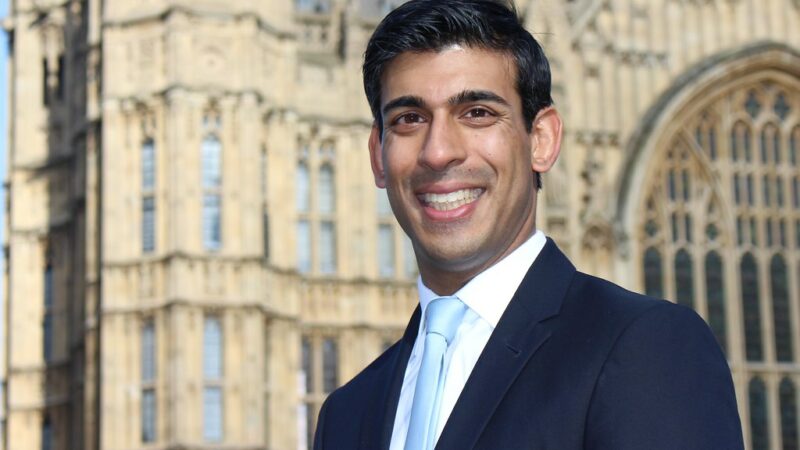As the Chancellor prepares for a public pay freeze, the IPPR calls for an ambitious investment in UK economy and welfare state.

The UK economy requires a cash injection of £164 billion in the year 2021-2021 to fully recover from the Covid-19 pandemic and put it on route to a fair, strong and green economy and restore public services to pre-austerity levels.
This is the finding of new analysis by the Institute for Public Policy Research (IPPR). The review of Britain’s economic prospect comes ahead of the Chancellor’s spending review taking place this Wednesday.
The IPPR says it’s “no time to be timid” and warns that without a cash injection of this size, the economy will lag 7% points behind its pre-Covid level.
In the paper titled ‘The Chancellor’s Challenge: delivering a stimulus for post-pandemic recovery’, the think tank argues that there has never been a better time to invest in the UK economy and welfare state. Borrowing more to get the economy moving will result in a lower debt share of GDP compared to the more cautious approaches that are being put forward, says the IPPR.
According to the report, a fiscal stimulus of that size will deliver the climate investments needed to reach Britain’s net zero target and repair the country’s frail public services, damaged by years of austerity.
The paper comes amid reports that the Chancellor Rishi Sunak is poised to take regressive steps to tackle the hole in public finances created by the pandemic.
Despite pledging austerity is over, the Chancellor is looking to introduce a public sector pay freeze, a measure analogous to several of his predecessors, including George Osborne – aka the ‘Austerity Chancellor.’
The Chancellor is expected to announce a move that would freeze the salaries next year for teachers, police, civil servants, and other public sector workers, in his spending review on Wednesday. Doctors, nurses, and other NHS staff are expected not to be included in the pay freeze in recognition of their hard work during the health crisis.
Essentially ‘cherry-picking’ which public sector workers deserve a freeze to their pay has been described as “morally obscene” and, by Labour, as an “absolute kick in the teeth.”
Responding to the leaked reports of the Chancellor’s plans to place a freeze on public sector pay, Matt Wrack, general secretary of the Fire Brigades Union (FBU), said:
“We warned ministers in the summer that clapping key workers would not pay the bills – but it seems in government memories are short, and morals in short supply.
“It won’t be lost on workers that their wages are set to be cut whilst the government continues to hand out contracts worth billions of pounds to its cronies. If finances really are a worry, the ultra-wealthy and the corporations who have cashed in on this pandemic should shoulder the burden through emergency tax measures.
“Firefighters have gone above and beyond to respond to the pandemic, from delivering vital supplies, to driving ambulances and moving the bodies of the deceased. But a decade of pay restraint has left them poorer today than they were before the global financial crash.
“It’s brutally unfair to leave key workers to wade through the media rumour mill for answers about their livelihoods. Further attacks on pay would show utter contempt for working people. Rishi Sunak needs to come out and reject those calling for public sector pay restraint,” Wrack continued.
In direct contrast to stripping vital workers of a pay rise in a bid to save money, the IPPR is calling for the government to support businesses and workers for a stronger, fairer economy. The think tank is urging part of the fiscal stimulus required for the economy to bounce back to be dedicated to providing support for work retraining and work sharing.
The report also urges for a boost in financial support for families, as part of a “family stimulus”, alongside other improvements to universal credit. In order to reverse the effects of austerity, the IPPR is calling for investments in “catch-up” funding for health, public health and social care, and to restore spending in all other areas, including grants to local government to pre-2010 trends.
Carys Roberts, IPPR Executive Director, noted the rise in foodbank usage in recent months and how hardship will increase without adequate support for the economy.
“The pandemic has had dire consequences for people’s lives – not just in health terms, but economically. Almost a million people have lost their jobs and the number of families with children using foodbanks has doubled,” Roberts said in a press statement.
“But there is no ‘going back’ to the pre-pandemic economy, as if its course had merely been paused. Instead we should use government intervention now to build back the kinds of economic activity we really value, instead of pursuing only GDP.
“We should focus on growing the jobs and industries that will enable us to reach net-zero, fix the long-standing weaknesses in our economic model, and build a resilient welfare state to serve every family well and withstand crises of the future” Roberts concluded.
Gabrielle Pickard Whitehead is a freelance journalist.
To reach hundreds of thousands of new readers we need to grow our donor base substantially.
That's why in 2024, we are seeking to generate 150 additional regular donors to support Left Foot Forward's work.
We still need another 117 people to donate to hit the target. You can help. Donate today.



